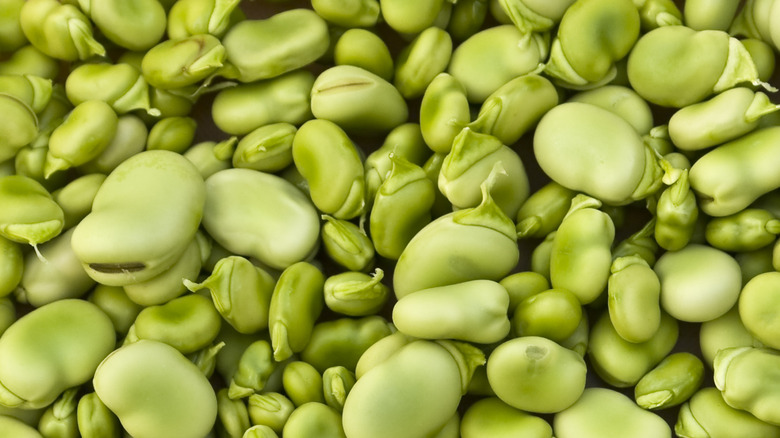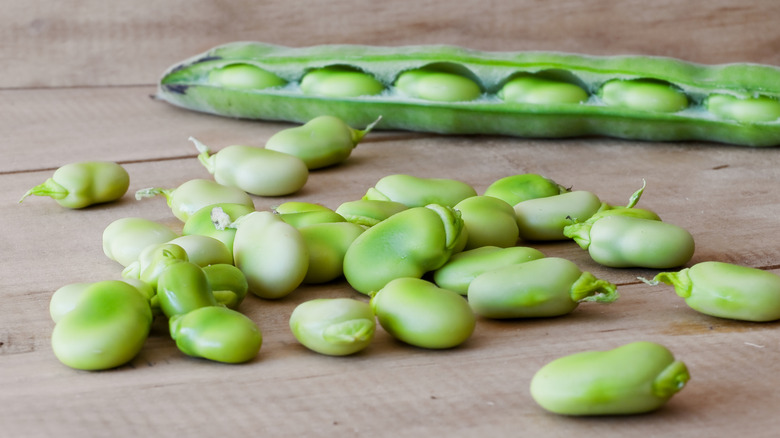Why You Should Steer Clear Of Raw Lima Beans
Some would argue that a warning to avoid raw lima beans is wholly unnecessary. People love to hate them, and some go out of their way to avoid them. Rancho Gordo, a bean purveyor in Napa, California favored by the likes of Thomas Keller and bean enthusiasts curious about heirloom varieties, lists a couple of kinds of lima beans, and the description for their Christmas lima bean reads: "'I hate lima beans!' is the reaction we get from most people."
Rancho Gordo also sells white lima beans, which they explain are popular in the southern U.S., where they're often called butter beans. Rancho Gordo explains, "Good, new crop Limas (like ours!) are worthy of your attention, especially if you grew up eating those nasty frozen beans, under pressure from your dear old mom. Chances are she overcooked them."
As it turns out, while overcooking lima beans may turn them into a mushy mess many eschew, raw lima beans aren't a good choice either. In fact, raw lima beans can actually be deadly.
Raw lima beans contain cyanide
Oregon State University's Extension Service explains that raw lima beans contain linamarin, a cyanogenic glycoside, which National Geographic says is completely harmless until the cells in the lima bean are disrupted — say, by chewing — at which point an enzyme causes the molecules to break apart and create something significantly less harmless — hydrogen cyanide.
Now, you probably don't need to panic. Oregon State points out that commercially grown lima beans in the U.S. have relatively low levels of cyanide, and the enzyme that creates cyanide is destroyed when lima beans are sufficiently cooked. Wild lima beans and some lima beans grown outside the U.S, however, can contain dangerously high levels of cyanide and should never be eaten raw or undercooked. And it turns out that most people can safely process a small amount of cyanide, assuming their diet contains sufficient protein, which helps them metabolize the chemical.
Interestingly, lima beans aren't the only foods that contain cyanide. Cassava, according to the Centers for Disease Control, wild bitter almonds, and the seeds of apricots, apples, and peaches also contain cyanide. Properly cooking cassava and lima beans makes them safe to eat, but wild bitter almonds, and the seeds of certain fruits, should definitely be avoided.

